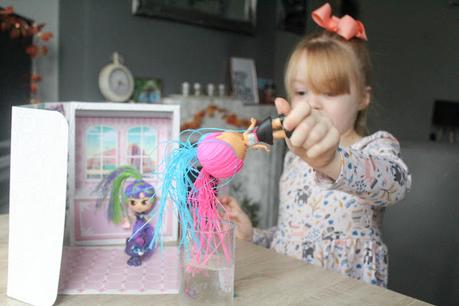
Most parents wonder whether their child is ahead of other kids, behind other kids, or average at some point. They also want to know whether they are on track with their learning and development. Several civilizations have established developmental milestones that specify what a kid should be able to perform at certain ages. Although each kid is unique, there are clear notions about the range of normal growth from birth to five years old, and achieving these milestones is a component of children's healthy development. When kids don't meet these milestones, it's frequently an indication that something is wrong.
The Importance of Play
Where does play fit
into this situation, then? A young child's primary employment is play, which is extremely useful in many ways and explains what kids do when they pursue their ideas and interests. Play is a crucial component of daily life and essential for the enjoyment of childhood, as it fosters sensory, motor, social, and emotional skills that support each child's journey toward developmental milestones. In this way, play enhances the quality of life and boosts confidence. Play is a brain-building activity rather than a frivolous one.
Across cultures worldwide, it’s evident that young children always want to play, regardless of their social and economic situations. Through play, they develop their imagination and creativity while also developing physically and learning how to control emotional and behavioural patterns.
How Play Helps Children to Reach Developmental Milestones
Children's general development can benefit from interactive play in a variety of ways. When kids develop, they pass through several play phases, which in turn contribute to reaching developmental milestones and teaching essential life skills.
Improved Communication Skills
Children can improve their communication skills through play as well. With the help of toys, they can learn colours, shapes, and any accompanying sounds, such as rustling or a bell ringing.
Enhanced Empathy and Emotions Control
Interactive play helps children learn to manage a variety of emotions, including joy, excitement, rage, fear, violence, and others. It also teaches them how to deal with their own emotions and disappointments, such as when play doesn't go as planned. All of these things contribute to stress relief, increased happiness, and a more peaceful way of life.
Better Motor Skills
By using interactive toys to construct and create, children may enhance their dexterity and coordination.
Improved Cognitive Abilities
Interactive play has also been recognized as a tool to support the development of academic skills by enhancing cognitive capacities and actively involving kids in their surroundings. This gives kids a chance to explore new concepts and form connections in a secure setting.
Family Bonding
Family ties are also strengthened due to interactive play, which also allows children and their parents or caregivers to better understand one another while having fun together. Children should engage in interactive play with other adults since it increases emotions of security and general welfare. More than that, children who can control their emotions are more likely to achieve developmental goals.
What is a Play-Based Approach?
Instead of using planned lessons or traditional teaching methods, educators at early childhood education and care services employ a variety of play-based activities to promote children's learning and development. They set up age-appropriate activities that all kids can safely play both indoors and outdoors.
Here are some ways to help children learn through play:
Supplying materials that encourage and enhance play by taking into account children's age, interests, knowledge, strengths, and culture. Open-ended toys and resources like blocks or cardboard boxes stimulate children's creativity and their ability to mentally manipulate ideas. Turn a box into a vehicle, for instance.
Arranging play activities based on evaluations of children's specific characteristics, interests, and developmental requirements. For instance, teachers �ould offer kids things of various sizes to grasp and strengthen their fingers while they learn how to wield a pencil to draw and write.
Adults should observe children while playing to learn about their interactions with other kids, the skills and knowledge they exhibit, and what activities can help them develop those talents.
Participating in children's play can help the kid learn more and will provide a good example of traits like logic, acceptable language, and positive behavior.
Allowing for lengthy periods of undisturbed playtime so that kids may develop their own ideas and games
If you are searching for toys that can facilitate learning and promote creativity, TickiT has got you covered. Our interactive toys are designed to engage children in fun and educational activities that encourage exploration and discovery. Whether you are looking for sensory exploration toys, learning to build toys, loose parts play toys, or imaginative play toys, we have a wide selection of high-quality products to choose from. Explore our collection by clicking the link for more details about our selection of toys.
If you enjoy my blog, please consider following me on Bloglovin'
